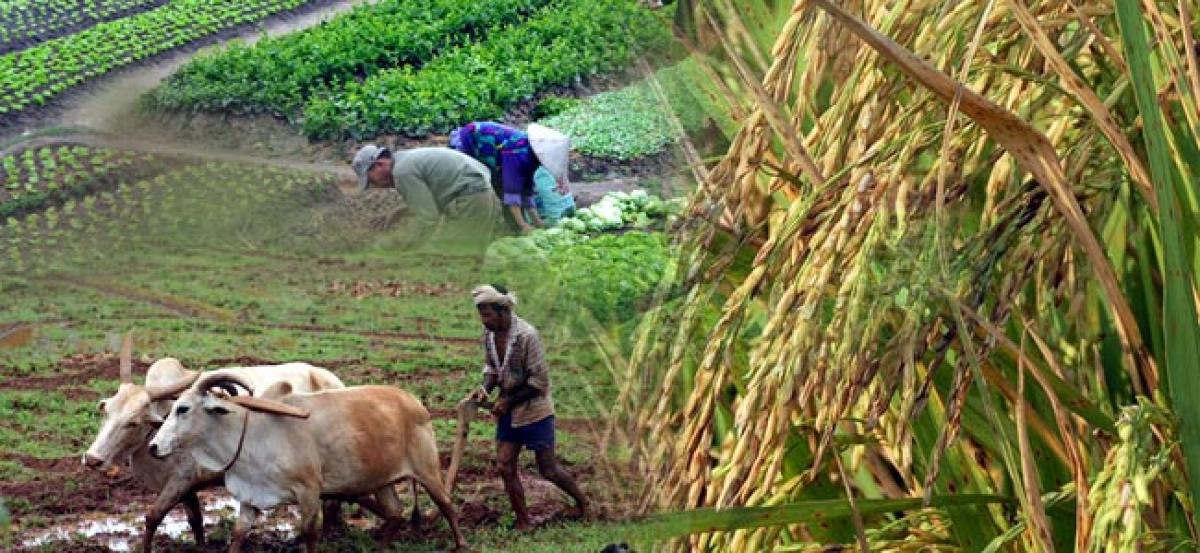Live
- State farm body raises pitch for turmeric board in Nzmbd
- Are you working for people of Karnataka or Gandhi family?
- Walls near Begumpet, RK Puram railway stations hit denizens hard
- Security forces destroy suspected IED found in J&K
- Gang behind cable theft in Metro busted
- AAP files plaint against BJP leader Chahal
- HC grants relief to actor Mohan Babu, stays police notices
- 'Grateful to all': Didi on INDIA bloc chief's role
- HMWSSB completes 50% of 90-day desilting special drive
- Lot to be done to get rid of manual scavenging: SC
Just In
Strategies suggested for doubling farmers’ income in Telangana


Agriculture scientists deliberated on various strategies to be deployed for ensuring a two-fold increase in farmers’ revenues at the first state
Agriculture scientists deliberated on various strategies to be deployed for ensuring a two-fold increase in farmers’ revenues at the first state coordination meeting on ‘Doubling the Farmers’ Income in Telangana by 2022, ’ held recently at the Professor Jayashankar Telangana State Agricultural University (PJTSAU), Hyderabad. Dr. V. Praveen Rao, Vice-Chancellor, PJTSAU and Chairman, SCC emphasized on development of sound strategy paper to identify interventions to maximize farmers’ income on sustainable basis, by taking 2016-17 as base year. He dwelt on the pathways and opportunities and a broad strategy framework to achieve the objective of doubling the farmer’s income.
Enhancing the Gross income, reduction in the costs and stabilizing the income and risk mitigation were discussed by taking examples from the Telangana situation. He said there was a need for development of implementable and monitorable action plan involving all stake holders. Further, he proposed the identification of two villages in each agro-climatic zone to show-case the technologies and developing them into model villages for agriculture and allied departments.
Dr. Ch. Srinivasa Rao, Director, ICAR-CRIDA (Central Research Institute for Dryland Agriculture) and Convener, SCC, pointed out the necessity of the meeting to develop an action plan / strategy paper to realize the objective of doubling the farmers’ income by 2022 considering opportunities and strengths of Telangana State. He suggested four thematic areas IFS, dryland horticulture systems, fodder based cropping systems in low-rainfall areas, agro-advisories and climate smart villages etc., for achieving this objective.
Dr. D Venkateswarlu, Director, Animal Husbandry Department, highlighted the need for development of value chain for each sector and also emphasized that the crop planning should always include fodder component and also the need to sustain the small ruminants maintained by small and marginal farmers as their livelihood since South Telangana Agro-climatic zone which falls under low rainfall area.
V. Usha Rani, Director General, MANAGE (National Centre for Management of Agricultural Extension) explained the need for implementation of micro-irrigation programs on large scale, keeping stringent control over individual bore-wells, development of village level water use plans considering the water availability in the tanks and groundwater. Officials from state agricultural universities, ICAR Institutes and state government participated in the deliberations.

© 2024 Hyderabad Media House Limited/The Hans India. All rights reserved. Powered by hocalwire.com






